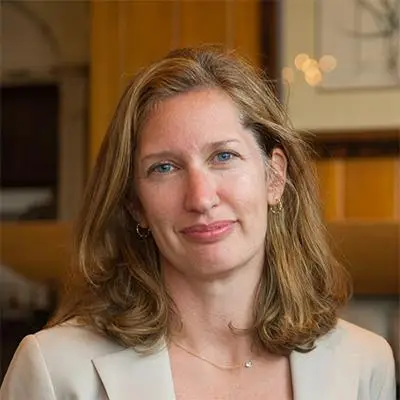There’s a Jewish parable about the mother of a boy who hates kreplach. The mother tries to ease the boy into liking the traditional dumplings by having him cook some with her. The boy is excited about the prospect of cooking together. He exclaims with delight at the addition of each ingredient—the beef, the potatoes, the onions. He helps roll out the dough and adds the filling. But at the moment the kreplach begin to take shape, he screams in terror, “GAAAH! Kreplach!”
This story often comes to my mind in education policy debates. In a recent online discussion about the controversial removal of a beloved principal at my son’s school, a parent lamented that she wished there were some way that the principal and our teachers could just start their own public school outside the district. Lots of other parents agreed that would be the perfect solution. “That would be called a charter school,” someone wrote. All discussion on that thread ceased. “GAAAH! Kreplach!”
In Philadelphia, a recent opinion piece by Susan Gobreski, a member of mayor-elect Jim Kenney’s transition team, employed a quote from Anna Karenina to argue that Philadelphia needs a way for each school to map its unique direction and own the implementation as a team:
“Tolstoy said, ‘All happy families are alike; each unhappy family is unhappy in its own way.’ It is a perfect way to understand schools, too. Successful ones are alike in key ways. Children are learning, there is a supportive community, and parents and teachers are happy. But each struggling school is not succeeding in its own individual way. They have specific children with individual needs. Even schools that appear to be alike may be quite different.”
Ms. Gobreski argued for a “community schools” strategy in which principals are given real responsibilities to determine their schools’ futures. Not so coincidentally, the goal of the portfolio governance strategy that Philadelphia is currently trying to implement is to empower educators with real autonomies and to establish school-based goals and outcomes. Gobreski says Philadelphia should focus on providing and aligning supports sufficient to meet student needs, and school leadership that understands how to do it. Yet she includes the portfolio strategy in a list of education reforms that would provide “the wrong emphasis” for Philadelphia’s schools. “GAAAH! Kreplach!”
The other evening, I was invited to speak at a screening of Beyond Measure, the follow up to Race to Nowhere, the 2009 documentary that portrayed the perils of over-testing. The new movie describes a depressing picture of our public schools: students largely disengaged, instruction largely drill and kill. In contrast, it profiles schools that are personalized, innovative, rigorous, and fun. About a third of these schools are public charter schools that manage to create great learning environments within the same testing culture as other public schools. Yet testing, charters, and “reform” were the implied culprits of our troubled education system, not factory-model school districts and ineffective teaching.
Sometimes these word/reaction disconnects happen because people are not being up front about their true agendas. They want all of the great ingredients without the dough. They want schools to have freedom, but not if it means that the schools would be free of the union contracts or run outside elected boards. They want schools to control resources, but not if it means that jobs would be lost in shrinking central offices. They want innovation, but not if it means adults will be asked to demonstrate results.
But just as often, people simply haven’t been offered the full story about how ingredients can come together to create something great, no matter what you call it. People don’t associate words like “portfolio” or “charter” with creating teacher-run schools or schools with an arts focus. By focusing on the names, instead of the ingredients, they don’t realize that these approaches to school governance give educators the freedom to meet the specific needs of students. Hand it to protectors-of-the-status-quo for winning on messaging. And shame on all of us for failing to make the link between governance reforms and educator empowerment, student engagement, and dynamic public schools of the future.
Happy Hanukkah. Light a candle, make some kreplach, and contemplate how we can overcome unnecessary divides in education.



